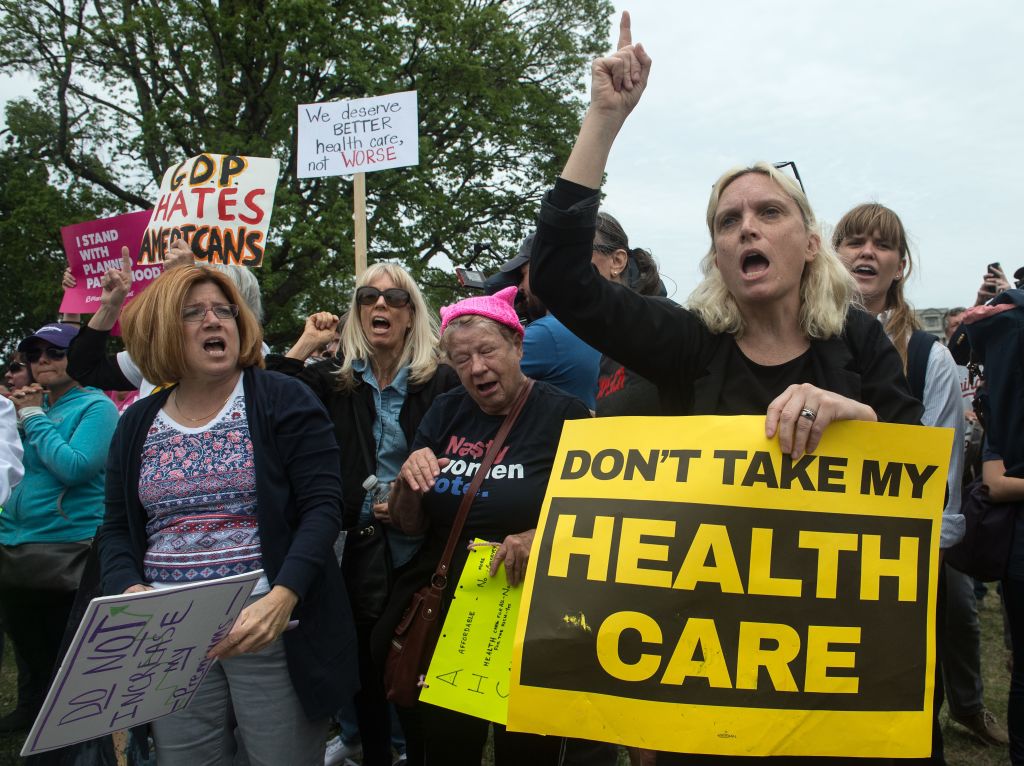That 'unconstitutional' ObamaCare ruling may never affect health-care coverage. Here's why.


A free daily email with the biggest news stories of the day – and the best features from TheWeek.com
You are now subscribed
Your newsletter sign-up was successful
Friday night's federal court ruling that the Affordable Care Act (ACA), commonly known as ObamaCare, is unconstitutional because of its individual mandate provision raised two key questions: What does this mean for Americans' health-care coverage? And will the ruling stand?
On the first point, the Centers for Medicare and Medicaid Services said there will be "no impact to current coverage or coverage in a 2019 plan." Beyond that, many legal experts are skeptical of the decision's longevity because though it claims the individual mandate is "essential to and inseverable from the remainder of the ACA," 2017's GOP tax reform law nixed the mandate's penalty.
Law professor Jonathan Adler explained this argument at length at The Volokh Conspiracy and in brief for Vox:
The Week
Escape your echo chamber. Get the facts behind the news, plus analysis from multiple perspectives.

Sign up for The Week's Free Newsletters
From our morning news briefing to a weekly Good News Newsletter, get the best of The Week delivered directly to your inbox.
From our morning news briefing to a weekly Good News Newsletter, get the best of The Week delivered directly to your inbox.
[Legal experts] say [the ruling] willfully ignores the intent of the 2017 Congress, which zeroed out the individual mandate penalty without touching the rest of the Affordable Care Act."They are asking the court to evaluate the current law on the basis of what the law used to be," Jonathan Adler, a law professor at Case Western University who supported previous ObamaCare challenges, has told Vox. "That whole analysis just doesn't apply or work anymore." [Vox]
Ted Frank, director of litigation for the conservative Competitive Enterprise Institute, likewise deemed Friday's ruling "an embarrassingly bad decision," arguing that "if a liberal judge had issued something like it goring a conservative ox, conservatives would be rightly up in arms." And New York Times editorial board member Cristian Farias contended the "partisan, activist ruling cannot stand," urging ACA supporters not to panic.
But George Mason University law professor llya Somin, also writing at The Volokh Conspiracy, sounded a note of greater caution. "I do not expect this ruling to survive on appeal," he said. "But I am not quite as confident on that subject as most other commentators seem to be. The fact that one federal judge has endorsed the states' severability argument increases the odds that others might, as well." Read his reasoning here.
A free daily email with the biggest news stories of the day – and the best features from TheWeek.com
Bonnie Kristian was a deputy editor and acting editor-in-chief of TheWeek.com. She is a columnist at Christianity Today and author of Untrustworthy: The Knowledge Crisis Breaking Our Brains, Polluting Our Politics, and Corrupting Christian Community (forthcoming 2022) and A Flexible Faith: Rethinking What It Means to Follow Jesus Today (2018). Her writing has also appeared at Time Magazine, CNN, USA Today, Newsweek, the Los Angeles Times, and The American Conservative, among other outlets.
